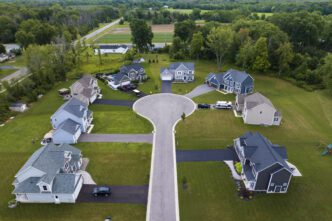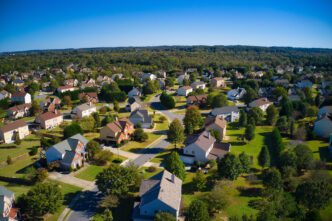Executive Summary
The Trajectory So Far
The Business Implication
Stakeholder Perspectives
AI is rapidly reshaping the landscape of real estate development, offering developers unprecedented tools to enhance efficiency, reduce risk, and maximize returns across the entire project lifecycle. From initial site selection and design optimization to construction management and post-development asset operations, artificial intelligence is empowering industry players worldwide to make more informed decisions, streamline complex processes, and unlock new value. This technological shift is not merely an incremental improvement but a fundamental transformation, driven by AI’s ability to process vast datasets, identify intricate patterns, and generate predictive insights that were previously unattainable, fundamentally altering how properties are conceived, built, and managed for long-term success.
Data-Driven Site Selection and Acquisition
AI revolutionizes the crucial initial phase of real estate development: identifying and acquiring the most promising land. By leveraging machine learning algorithms, developers can analyze diverse datasets, including demographic shifts, economic indicators, zoning regulations, infrastructure plans, and historical transaction data. This comprehensive analysis helps pinpoint optimal locations with high growth potential and favorable market conditions, far beyond traditional methods.
Predictive Analytics for Market Trends
AI models can forecast future property values, rental yields, and demand patterns with remarkable accuracy. These predictions consider factors like interest rate changes, employment growth, population migration, and even social media sentiment. Developers can use these insights to strategically acquire land in areas poised for significant appreciation or demand, ensuring their projects align with future market needs.
Furthermore, AI helps identify underserved markets or niche opportunities that human analysts might overlook. By spotting subtle correlations in vast datasets, AI can uncover hidden demand for specific property types or amenities. This foresight allows developers to innovate and differentiate their offerings, gaining a competitive edge.
Risk Assessment and Due Diligence
Beyond identifying opportunities, AI significantly enhances risk assessment during due diligence. Algorithms can evaluate environmental risks, geological stability, regulatory compliance issues, and potential community resistance by analyzing satellite imagery, public records, and historical data. This proactive identification of potential pitfalls enables developers to mitigate risks early or adjust their acquisition strategies accordingly.
AI can also analyze legal documents and contracts at speed, flagging inconsistencies or clauses that might pose future liabilities. This automated review process drastically reduces the time and cost associated with traditional due diligence, allowing for faster and more confident decision-making in competitive markets.
Optimizing Design and Planning
Once a site is acquired, AI continues to play a pivotal role in the design and planning phases, moving beyond conventional architectural practices. Generative design tools and sophisticated simulation platforms powered by AI enable developers to explore a multitude of design options that optimize for factors like natural light, energy efficiency, structural integrity, and occupant comfort. This leads to more sustainable, cost-effective, and user-centric designs.
Generative Design
Generative design algorithms can rapidly produce thousands of design iterations based on specified parameters, such as budget constraints, material availability, zoning laws, and desired functionality. Developers can input criteria like maximum floor area, sunlight exposure, or parking requirements, and the AI will generate optimal layouts and building forms. This process significantly accelerates the design phase and uncovers innovative solutions that might not emerge through human-only ideation.
These AI-powered tools also integrate Building Information Modeling (BIM) data to ensure designs are constructible and compliant with various regulations. They can simulate performance metrics, such as energy consumption or airflow, allowing for real-time adjustments that enhance sustainability and operational efficiency long before construction begins.
Permitting and Compliance Automation
Navigating the complex world of permits and regulatory compliance is often a major bottleneck in real estate development. AI-powered systems can automate the review of architectural plans against local zoning codes, building regulations, and environmental standards. These systems quickly identify potential violations or missing documentation, significantly reducing delays and costly rework.
By leveraging natural language processing (NLP), AI can interpret legal texts and apply them to specific project details, ensuring all submissions are accurate and complete. This automation not only speeds up the approval process but also minimizes human error, fostering smoother interactions with regulatory bodies.
Enhancing Construction Efficiency
The construction phase, notoriously prone to delays and cost overruns, is another area where AI is making significant inroads. AI tools are being deployed to optimize project scheduling, manage supply chains, enhance on-site safety, and improve quality control, leading to greater predictability and efficiency. These applications help developers maintain project timelines and budgets more effectively.
Predictive Maintenance and Quality Control
AI-driven analytics can monitor construction progress and identify potential issues before they escalate. By analyzing data from sensors, drones, and project management software, AI can predict equipment failures, material shortages, or deviations from the planned schedule. This allows project managers to intervene proactively, preventing costly delays and ensuring quality standards are met.
Computer vision, a subset of AI, is used for real-time quality control and safety monitoring on construction sites. Drones equipped with AI can autonomously inspect work, identify defects, or detect unsafe practices, providing immediate feedback. This constant oversight ensures adherence to specifications and significantly reduces workplace accidents.
Supply Chain Optimization
AI algorithms can optimize the entire construction supply chain, from procurement to delivery. By forecasting material demand, tracking inventory levels, and analyzing supplier performance, AI minimizes waste and ensures timely arrival of necessary components. This precision reduces carrying costs and avoids project slowdowns due to material unavailability.
Furthermore, AI can identify alternative suppliers or logistics routes in real-time if disruptions occur, such as unforeseen weather events or geopolitical issues. This resilience in the supply chain is crucial for maintaining project momentum and mitigating financial risks associated with delays.
Revolutionizing Sales, Marketing, and Asset Management
AI’s influence extends beyond development and construction, profoundly impacting how properties are sold, marketed, and managed throughout their operational lifespan. These applications enhance customer engagement, optimize pricing strategies, and ensure the long-term profitability and sustainability of real estate assets.
Personalized Marketing and Sales Forecasting
AI enables highly personalized marketing campaigns by analyzing vast amounts of consumer data, including browsing habits, demographic information, and purchase history. Machine learning models can identify ideal buyer profiles and predict which properties are most likely to appeal to specific segments. This leads to more targeted advertisements and higher conversion rates.
Sales forecasting is also revolutionized by AI, which can predict future demand for specific property types or units. By considering market trends, economic indicators, and historical sales data, AI provides developers with accurate sales projections, allowing them to adjust pricing strategies and marketing efforts in real-time to maximize revenue.
Smart Building Operations and Asset Management
Post-development, AI-powered smart building systems transform asset management. These systems utilize sensors and data analytics to optimize energy consumption, predict maintenance needs, and enhance tenant comfort and security. AI can learn usage patterns and automatically adjust HVAC, lighting, and security systems, leading to significant operational cost savings and increased property value.
For property managers, AI tools can streamline tenant communication, automate rent collection, and predict tenant turnover. This proactive approach improves tenant satisfaction, reduces vacancies, and ensures the long-term profitability and attractiveness of the developed assets. AI also provides insights into building performance, enabling continuous optimization and sustainability improvements.
Challenges and Considerations
While the benefits of AI in real estate development are clear, adoption is not without its challenges. Data quality is paramount; AI models are only as good as the data they are trained on, necessitating robust data collection and cleansing processes. Ethical considerations, such as data privacy and algorithmic bias, also require careful attention to ensure fair and equitable outcomes.
Furthermore, the successful integration of AI tools demands a skilled workforce capable of understanding and leveraging these technologies. Developers must invest in upskilling their teams or recruiting new talent with expertise in data science and AI. Overcoming these hurdles is crucial for realizing the full transformative potential of AI in the industry.
The Future of Real Estate Development
Artificial intelligence is not just a tool but a strategic imperative for real estate developers seeking to thrive in an increasingly complex and competitive market. By embracing AI, developers can unlock unprecedented efficiencies, make more precise investment decisions, create superior and sustainable designs, and manage assets with unparalleled intelligence. Those who strategically integrate AI across their operations will be best positioned to lead the next generation of real estate innovation, delivering projects that are not only financially successful but also environmentally responsible and socially beneficial. The future of real estate is intelligent, and AI is the architect of that future.








